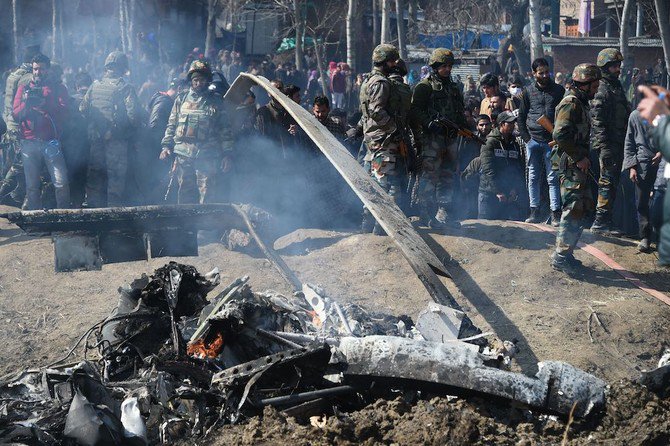Imran Khan calls for talks after India and Pakistan shoot down jets

India and Pakistan engaged in aerial hostilities along the Kashmiri Line of Control (LoC) for the first time since 1971 on Wednesday, with New Delhi claiming to have lost a pilot in action, and Islamabad losing an F-16 fighter jet, according to Indian sources.
Pakistan’s Prime Minister Imran Khan called for a de-escalation of the tensions and invited Indian officials to choose dialogue over force in a televised address to his nation.
The address came after Pakistani jets shot down two Indian warplanes across the LoC, the de facto border dividing Indian- and Pakistani-administered Kashmir. One Indian pilot was reportedly captured.
Khan said the two sides could not afford a miscalculation with the weapons they had, and he was willing to sit down with his Indian neighbors and discuss ways to resolve their outstanding issues, including terrorism.
“Let’s sit together and resolve our problems through dialogue,” Khan told the Indian leadership in a televised address after chairing a high-level meeting of the National Command Authority, which oversees Pakistan’s nuclear weapons.
In a statement, the Indian Ministry of External Affairs said that Pakistan had responded to its legitimate “counter-terrorism action” against the group Jaish-e-Mohammed, suspected of carrying out an attack on an Indian military convoy last week, by “targeting military installations on the Indian side.”
The statement added that the IAF had lost one MiG-21 fighter jet, and that its pilot was missing. Efforts, it added, were underway to confirm Pakistani claims that he had been taken into custody across the border.
The Pakistani Ministry of Foreign Affairs admitted Islamabad had attacked Indian military positions, but claimed to have only done so in self-defense.
“The sole purpose of this action was to demonstrate our right, will and capability for self-defense. We do not wish to escalate but are fully prepared if forced,” a spokesman said.
Earlier this month the Pakistan-based militant group JeM claimed responsibility for a suicide bombing in the Pulwama district of Indian-administered Kashmir in which more than 40 paramilitary troops were killed.
Khan said he had “offered peace to India after what happened in Pulwama. I understood the pain of the families (who lost family members in the incident). We offered India our complete cooperation in the investigations, as this is not in Pakistan’s interest to let its soil to be used against any other country.”
He added: “But I feared that India would do a misadventure due to upcoming elections.”
Referring to the shooting down of the Indian MiG-21 aircraft, Khan said: “No sovereign country can allow violation of its sovereignty. I had told India of retaliation.“The sole purpose of our action was to convey that if you can come into our country, we can do the same.” He said Pakistan had planned to ensure that any retaliatory action caused no collateral damage or casualties.
Khan said it was of the “utmost importance” to “exercise wisdom and acumen” to avoid further conflict. “All wars are miscalculated, and no one knows where they can lead,” he added.
Addressing his Indian counterpart Narendra Modi, the prime minister said: “With the weapons you have and the weapons we have, can we really afford such a miscalculation?”
Extending the offer of talks to India, Khan added: “Better sense should prevail.”
Security and defense experts have hailed Khan’s stance. Tahir Malik, an academic and analyst, told Arab News: “It is now up to India whether it engages with Pakistan for dialogue to resolve the issues peacefully, or keeps trumpeting the warmongering mantra.”
Malik also called for an international effort to help resolve the dispute over Kashmir.
“The real challenge for both Pakistan and India now is to de-escalate and engage in a meaningful dialogue. We hope the Indian leadership will reciprocate Prime Minister Khan’s message of peace.”
India’s Prime Minister Narendra Modi held meetings with senior military chiefs and the heads of his nation’s intelligence services throughout Wednesday.
New Delhi shut nine airports in the north of the country in the immediate aftermath of the Pakistani airstrike, but all have since reopened.
Indian opposition leaders, meanwhile, have condemned Modi for “the politicization of the Pulwama attack,” asking him to address the nation to explain himself.
Kashmir-based political analyst Dr. Siddiq Wahid said: “The ‘no dialogue’ approach of the Modi regime has not worked, and in fact made matters worse. It is time to talk.”
